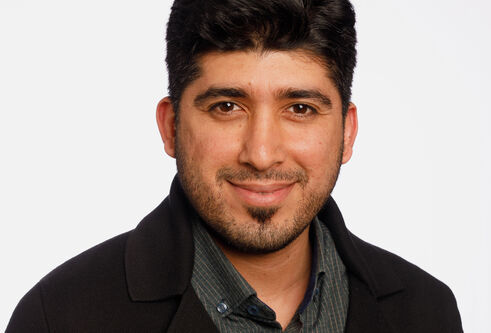PhD opportunity
Modelling fracture and healing of self-healing enzymatic construction materials using a novel fluctuation based fracture mechanics theory
Unfunded
30 September 2026
Concrete, the most used material globally, is responsible for 8% of global CO2 emissions. Although strong, concrete is inherently brittle and prone to fracture. Current repair methods result in weakened material. Recently, a safe and effective method of repair using an enzyme called Carbonic Anhydrase (CA) is reported. The innovation showed that the treatment of fractures with a CA solution produces a strong material that is both molecularly and structurally indistinguishable from the original and provides self-healing capability over several months. This project is an in-silico investigation is expected to provide (1) a means to identify the current weakness of the existing ECM mixture; and (2) a pre-selection of material properties for matrix and aggregates which synergistically enhance the fracture resistance. Modelling fracture and failure is one of the main foci of computational efforts in mechanics and materials science and engineering. This multidisciplinary project on the interaction of biophysics, chemistry, and materials science focuses on sustainability.
Key objectives and potential impact
Enzymatic Construction Materials offer a reduced environmental footprint by actively separating CO₂, making industrial construction a carbon-negative process. Their self-healing capabilities extend material lifespan, minimizing repair frequency and maintenance costs, which is essential for industries with high uptime requirements. Additionally, ECMs are customizable for various industrial applications, including heavy-duty floors, structural components, and extreme environments. By integrating sustainability into construction, ECMs strengthen industrial sustainability, supporting corporate Environmental, Social, and Governance (ESG) goals, regulatory compliance, and growing market demand for eco-friendly materials.
Requirements for candidates: Programming, Fracture Mechanics
Diversity statement
Our research community thrives on the diversity of students and staff which helps to make the University of Dundee a UK university of choice for postgraduate research. We welcome applications from all talented individuals and are committed to widening access to those who have the ability and potential to benefit from higher education.
How to apply
- Email Dr Sina Askarinejad to:
- send a copy of your CV
- discuss your potential application and any practicalities (e.g. suitable start date)
- After discussion with Dr Askarinejad, formal applications can be made via our direct application system.
